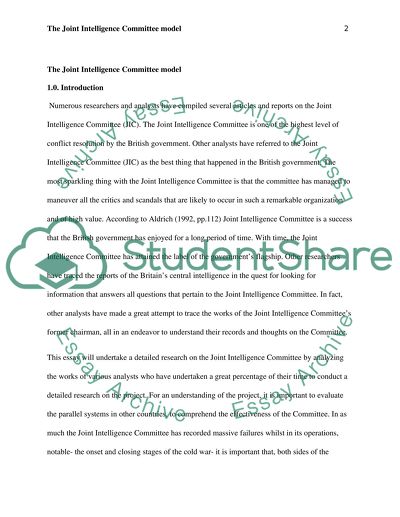Cite this document
(“The Joint Intelligence Committee model Essay Example | Topics and Well Written Essays - 3500 words”, n.d.)
Retrieved from https://studentshare.org/history/1394428-how-effective-is-the-joint-intelligence-committee
Retrieved from https://studentshare.org/history/1394428-how-effective-is-the-joint-intelligence-committee
(The Joint Intelligence Committee Model Essay Example | Topics and Well Written Essays - 3500 Words)
https://studentshare.org/history/1394428-how-effective-is-the-joint-intelligence-committee.
https://studentshare.org/history/1394428-how-effective-is-the-joint-intelligence-committee.
“The Joint Intelligence Committee Model Essay Example | Topics and Well Written Essays - 3500 Words”, n.d. https://studentshare.org/history/1394428-how-effective-is-the-joint-intelligence-committee.


